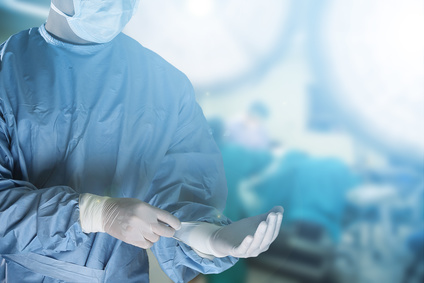
October 29, 2018
Anti-reflux surgery, is a surgical procedure performed to treat hiatal hernia and Gastroesophageal Reflux Disease – GERD – typically prescribed when medical therapy and antireflux medication fail to provide relief. Alternatively, many patients pursue antireflux surgery when they have concens about staying on medications long-term. Patients typically undergo Nissen Fundplication or LINX (sometimes called magnetic sphincter augmentation). If you too have been experiencing acid reflux and are looking for experienced general surgeons in Fort Worth or any other place, DFW Bariatrics and General Surgery has got you covered. Our surgeons are specialized in performing a number of non-invasive procedures, including antireflux surgery. Continuing the discussion, in this blog, we cover all you need to know about life after anti-reflux surgery.
Diet Plan
Patients who receive fundoplication vs. LINX have different diet plans after surgery. The Nissen patient who undergo anti-reflux surgery is kept on a liquid-only diet for the first few days, and gradually incorporate creamy or soft food items. Following the diet is important to make sure the stomach gets the required time to heal and start processing food properly. LINX patients are just the opposite, started on an aggressive plan for solid and bulky foods eveyr few hours for the first 4-6 weeks. Patients usually return to their normal diet in about 6-8 weeks. If a patient feels nauseated or unwell after having a meal, they must immediately contact their doctor.
Bowel Movement
Many patients experience constipation for the first few day or weeks after anti-reflux surgery. Constipation can be the result of a number of factors, such as reduced physical activity, reaction to the anesthesia used in surgery, and intake of anti-inflammatory medication or narcotic pain medications. Doctors, therefore, prescribe mild laxatives for extreme conditions and also ask you to increase fibre intake, to help improve bowel movement.
Pain Management
After undergoing an antireflux surgery, it is common for patients to experience pain in a number of part of the body, including back, mid-chest, throat, shoulders, and abdomen. Although the pain subsides as the body heals, the doctor usually prescribes anti-inflammatory medicines to minimize discomfort and manage acute pain. In many cases, the pain is so well-controlled that these procedures can be performed as an outpatient.
Exercise Regimen
After any surgery, including an antireflux surgery, patients need to rest and avoid exertion. They must not lift heavy objects and incorporate easy, light aerobic exercises to speed up the recovery process. In addition, it is essential to have a proper diet and sleep routine, to help ensure a fast recovery, without any complications.
Looking for General Surgeons in Dallas? Contact Us!
The outcome of an anti-reflux surgery largely depends upon the capabilities of the surgeon carrying out the procedure, which is why it is important to make sure you are in expert hands. If you are looking for a general surgeon in Dallas or any other place, look no further than DFW Bariatrics and General Surgery. We are a team of experienced bariatric surgeons specialized in various surgical procedures, including antireflux surgery. To learn more about anti-reflux treatment options in Dallas, simply call 469-620-0222 or fill out our contact form and we will get back with you, shortly. To schedule an appointment with one of our general surgeons, click here.
